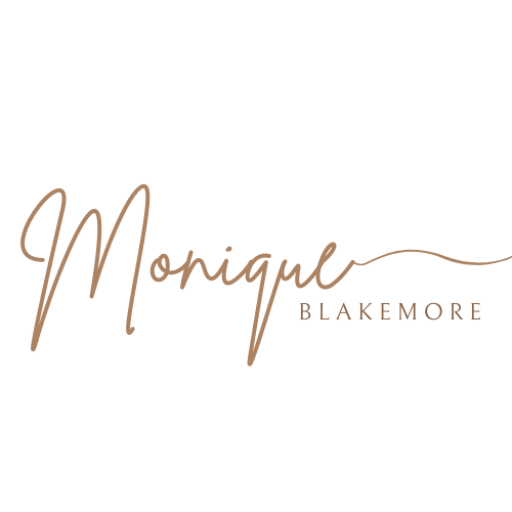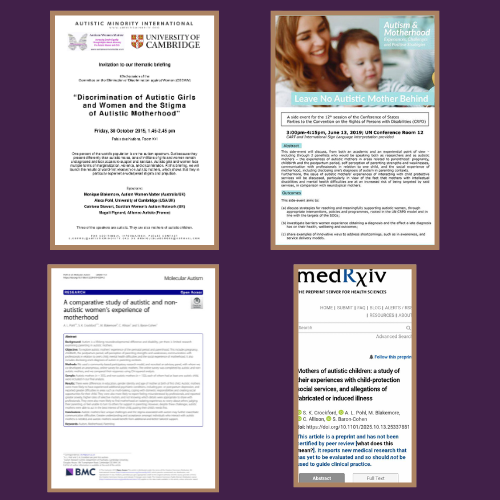Facebook reminded me of a moment that changed everything in my advocacy for Autistic mothers, a post when I was travelling from Manchester to Cambridge for a meeting with researchers from the Autism Research Centre at Cambridge University. I remember that train journey so vividly with the mix of hope, nerves, and that feeling that maybe, just maybe, something important was beginning.
Last month, I looked up the presentation Dr Alexa Pohl gave back then of the preliminary results of the Autistic Mothers research. That work meant (and still means) so much to so many of us. So I wrote to Sir Professor Simon Baron-Cohen:
“Do you realise it was 10 years ago that the preliminary results of the motherhood research were presented at IMFAR? Given that this still isn’t published, I would now like to share the document that was presented to CEDAW at the UN. Please can I have your permission to do so?”
His reply came quickly — “It’s a sobering point that Monique reminds us that it’s a decade since the UN presentation, so let’s give this a final push to get this published.”
Dr Sarah Crockford, one of the researchers, suggested releasing a preprint so I could finally share the manuscript publicly. And in that discussion, Simon said something that truly touched me:
“On balance I feel we should preprint this paper — we owe it to you, Monique, to have something to refer to in the public domain. Peer review and publication could take another 8 months, realistically.”
After all this time, to hear those words — “we owe it to you” — felt like recognition. Not just for me, but for every Autistic mother who has shared her truth, who has been silenced or misunderstood, and who has kept fighting anyway.
I want to share a story about safety. At one point, Simon was in the USA giving a presentation and met my friend Dr Dena Gassner, who mentioned that I was in court that day. Simon misunderstood and thought my family was in court (I was supporting an Autistic mother), and he asked one of the team to reach out to me to offer support. I received a call very late that night, and to be honest, I cried.
I was an Australian Autistic woman living in England, at that stage only one parent was disclosing our autism diagnosis with professionals, our kids were little, and I was working in the area of child protection in our community. Getting that call, that offer of support, I felt safe. And it just reinforced that all of us should feel safe. That we have professionals who will back up our capabilities and challenge the stigma surrounding our ability as Autistic people to parent. And darn it, that countries follow the CRPD guidelines on our rights.
Since first forming, the team has had many changes. I moved back home to Australia. The NGO I had formed (with some brilliant Autistic women who at different stages were part of it) had wrapped up. Researchers moved labs, changed countries, shifted focus, and some changed career directions completely. We now work across three different international time zones, juggling life, work, and this piece of history that still matters deeply to all of us.
And through it all, the research team have been nothing but supportive of me, and of Autistic mothers everywhere. Alexa Pohl came with me to the United Nations in Geneva where alongside Autistic advocates from Scotland, France, England and Australia, we presented our findings to the CEDAW (Convention for the Elimination of Discrimination Against Women) Committee. Having Cambridge University’s name beside us, I’m sure, was one of the reasons almost all the committee members accepted our invitation for the thematic briefing.
After hearing us, they asked if we could meet again later that night once their working day had ended. I remember waiting outside on the smokers’ step, watching the peacocks wander past, the mountains silhouetted against the fading light. There was this energy of nervous excitement, hope, and a sense that something important was happening. Songs were sung to those mountains that evening. And we pinkie promised not to share that video footage.
And then, we found ourselves walking through the quiet, almost people-less UN building with lights dimmed, corridors echoing and being led to a meeting room to speak with the Chair, the Co-Chair, and the Special Rapporteur. It felt surreal. It felt sacred. And it highlighted to me that when Autistic women and researchers speak together, the world does listen even in the most powerful of places.
Years later, my dear friend Dr Alistair de Gaetano and I produced a side event at the United Nations in New York called Leave No Autistic Mother Behind. Once again, the Cambridge research team joined me. Sarah Crockford spoke beautifully, representing our preliminary findings, and it was another moment that showed how deeply this team has stood beside us, not just as researchers but as allies and advocates for Autistic mothers.
Over the years, I have written many submissions on Autistic human rights to governments, inquiries, and international bodies. For the major ones, such as when the UN Special Rapporteur on Violence Against Women visited Australia, I would send the submission to Simon, who would read it and provide an endorsement.
I know we shouldn’t have to rely on non-Autistic professionals to validate our truth, but that is still the current reality. I also know that with his words attached, those documents were read by more people, the ones who make decisions that affect us, and perhaps read more carefully and thoughtfully than they might have been otherwise.
This year, when Alistair and I again co-produced an event at the UN in New York, this time focusing on domestic violence and sexual victimisation, Simon was an encourager once more. His words meant a lot:
“I am grateful to you for alerting the world that autistic people, and particularly Autistic women, are experiencing these totally unacceptable levels of sexual violence, coercion, and domestic abuse. Autistic people need greater safeguarding.”
The benefit of a preprint is that it lets the document breathe. This is the version I love most as an activist before the language was softened or reshaped to fit scientific conventions. During peer review, it sometimes felt like the heart of the paper and the voice of Autistic women was, if not erased, at least muted. This dance between science and activism has always been delicate, but I think, as a team, we’ve managed it with grace. There have been many conversations about things that might seem small but mean so much like whether to write Autistic with a capital A. To me, it’s an identity. To science, it’s often seen as a diagnosis. And that’s exactly the point, activism is unusual in those spaces. But it’s needed.
It’s also important to note the impact of the sister paper, A Comparative Study of Autistic and Non-Autistic Women’s Experience of Motherhood, which was published in 2020. That paper has now been accessed over 58,000 times, cited 120 times, and has an online attention score of 295. This work, and the team we formed to make it happen, has profoundly influenced the way Autistic mothers are seen and understood.
And now, a decade later, to be at this point to finally be able to share this version with the world feels right. It’s not just data or analysis; it’s a record of voices, moments, and memories that shaped a movement.
Our call to the international community is written in our pre-print document:
“We call for international data on the prevalence of Autistic children under protection so that governments with outlying rates of Autistic children in protection can investigate their practices for bias.
Child protection is a pervasive yet woefully understudied topic in autism, and we look forward to exchanging ideas with physicians, psychologists, health visitors, nurses, social workers, and educators working in child protection”.
To the Autism Research centre team at Cambridge University of Simon, Alexa, Sarah, Carrie, and every researcher who has been part of this journey thank you. You have been brilliant to work with. You’ve listened, learned, respected, and stood beside us as equals. You’ve proven that research doesn’t have to be cold; it can be human, relational, and full of heart. I’m deeply grateful.
Author Reflection
Looking back over ten years, I can see how much of this journey has been about holding space for two truths at once, the rigour of science and the heart of activism. I’ve learned that research can be both evidence and emotion, data and story. The preprint isn’t just a paper; it’s a piece of our shared history. A bridge between systems that often forget to listen, and the women who kept speaking anyway.
https://molecularautism.biomedcentral.com/articles/10.1186/s13229-019-0304-2

